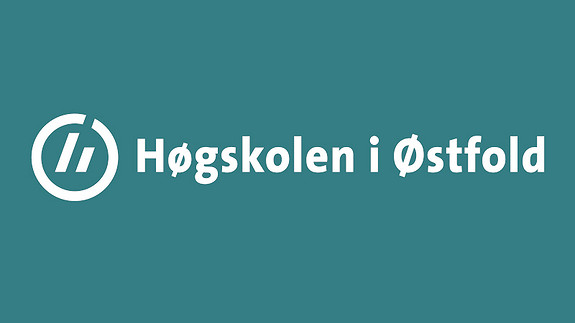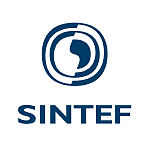
PhD scholarship within environmental data science
- Arbeidsgiver
- Norges miljø- og biovitenskapelige universitet (NMBU)
- Stillingstittel
- PhD scholarship within environmental data science - 25/00545
- Frist
- 15.03.2025
Beskrivelse
The Faculty of Environmental Sciences and Natural Resource Management (MINA) at the Norwegian University of Life Sciences (NMBU) has a vacant 3-year PhD position in Applied Ecology with the following topic: Using artificial intelligence to detect, quantify, and map cryptic mortality in large carnivore populations in Scandinavia.
Illegal killing of wildlife is a global phenomenon with substantial impact on biodiversity and wildlife management. Due to its cryptic nature, most illegal deaths remain undetected. This severely limits our ability to understand the drivers of illegal killing, its importance for the dynamics of wildlife populations, as well as the best ways to mitigate its impacts. In this project, the candidate will apply AI methodologies on multimodal data to quantify and map hidden mortality in large carnivore populations in Norway and Sweden. The student will have access to one of the world’s foremost datasets on large carnivores, with individual based data on thousands of wolverines, wolves, and bears.
The primary data source are annual non-invasive genetic sampling data (providing species, sex, individual id, and location), as well data on animals that died due to various causes (location, cause of death, etc.). These multimodal data have been collected for more than 10 years. A comprehensive approach will be achieved through collaboration with ecologists (Applied Quantitative Ecology Group at MINA), data scientists (Machine learning at Faculty of Science and Technology (REALTEK)), computer scientists (high-throughput computation, University of Berkeley) as well as wildlife management agencies in Norway and Sweden.
The aim of the PhD project is to develop machine learning models from the available multimodal data in order to:
(I) support ecologists to measure and map cryptic mortality in wild populations;
(II) aid management and law enforcement entities in focusing their limited investigative resources.
Among the outcomes of interest are maps identifying hotpots where illegal mortality is likely to have occurred in the past or where there is an elevated risk of it occurring in the future.
The applicant is made aware that an application for a PhD position at NMBU is at the same time an application for admission to a PhD programme at the institution. The documentation that is necessary to ensure that the admission requirements are met must be uploaded as an attachment.
The tentative position start date is August 1, 2025, but earlier and later start dates can be negotiated within reason.
Main tasks
The PhD student’s tasks will include:
- Development, application and evaluation of machine learning models based on available multimodal data
- Preprocessing of ecological and law-enforcement data for integration in machine learning models.
- Dissemination of results through scientific publications and conferences
- Collaboration with other team members and partners
The PhD student will be involved in study design and development of specific research questions.
The successful candidate is expected to enter a plan for the progress of the work towards a PhD degree during the first months of the appointment, with a view to completing a doctorate within the PhD scholarship period.
Competence
The successful applicant must meet the conditions defined for admission to a PhD programme at NMBU. The applicant must have an academically relevant education corresponding to a five-year master’s degree, with a learning outcome corresponding to the descriptions in the Norwegian Qualification Framework, second cycle. The applicant must have a documented strong academic background from previous studies and be able to document proficiency in both written and oral English. For more detailed information on the admission criteria please see the PhD Regulations and the relevant PhD programme description.
The applicant must document expertise and interest in the research subject.
Required Academic qualifications
- Master´s degree within a relevant scientific field, preferably, data science or applied mathematics/statistics, but also other fields as quantitative ecology, bioinformatics may be relevant
- Knowledge in statistics and machine learning
- Excellent programming skills
Preference will be given to candidates with some or all of the following:
- Experience with developing, validating and deploying machine learning models based on multimodal data
- Experience with high-throughput computation and data visualization in geographical maps
- Good social and collaboration skills
- Ability to work and co-operate in an interdisciplinary working environment
- Flexibility with respect to work tasks
- Creativity and ability to find solutions to practical problems
We support equality and diversity in research. When recruiting new lab members, including PhD students, we welcome all candidates and value the benefits of a team composed of people with a broad range of abilities, experiences, and backgrounds. We expect all team members to contribute toward a work environment that fosters inclusion, accessibility, and ease of collaboration.
Remuneration and further information
The position is placed in government pay scale position code 1017 PhD. Fellow. PhD. Fellows are normally placed in pay grade 54 (NOK 532.200,-) on the Norwegian Government salary scale upon employment and follow ordinary meriting regulations.
Employment is conducted according to national guidelines for University and Technical College PhD scholars.
For further information, please contact Dr. Richard Bischof (professor)
E-mail: richard.bischof@nmbu.no
Information for PhD applicants and Information to applicants
Application
To apply online for this vacancy, please click on the 'Apply for this job' button above. This will route you to the University's Web Recruitment System, where you will need to register an account (if you have not already) and log in before completing the online application form.
Application deadline: March 15, 2025
Your CV must be entered in JobbNorge's CV form and not just included as an attachment. This is to be able to comply with the regulations of §15 of the Public Administration Act.
In the application, the candidate must confirm that information and documentation (in the form of attachments) submitted via the job application can also be used by NMBU in a possible admission process.
Applicants invited for an interview are expected to present original diplomas and certificates.
The following documents must be attached to the application:
- Motivation letter (maximum 1 page)
- Complete CV
- Certified copies of academic diplomas and certificates. (i.e. Diploma, transcript. Diploma supplement for both bachelor and master). Diplomas, transcripts and diploma supplements that are not in Norwegian or English must be uploaded in the original language. An English translation of these documents must also be attached.
- Applicants from universities outside Norway are kindly requested to send a diploma supplement, or a similar document, which describes in detail the study program and grading system.
- Documentation of proficiency in written and oral English in accordance with NMBU PhD regulation section 5-2 (3).
- Names and contact details for two references
- Additional relevant documentation of professional knowledge (for example, list of scientific works). If it is difficult to judge the applicant’s contribution for publications with multiple authors, a short description of the applicant’s contribution must be included.
About The Faculty of Environmental Sciences and Natural Resource Management
The Faculty of Environmental Sciences and Natural Resource Management (MINA) works with nature and the environment, sustainable use of natural resources, biological and geological processes.
MINA’s employees undertake teaching, research and dissemination within the fields of geology, hydrology and limnology, soil science, environmental chemistry, forestry, ecology, natural resource management, renewable energy, and nature-based tourism.
Our vision is to be a key actor in knowledge production and dissemination, and our goal is to deliver research of high, international quality, and varied and excellent teaching. The faculty’s employees are significant participants within their respective fields of expertise, both nationally and internationally. The faculty is dominated by a vital research culture and high levels of scientific production.
The faculty has about 200 employees, 90 PhD students and 650 students.
Read more about MINA here.
- Sektor
- Offentlig
- Sted
- Universitetstunet 3, 1430 Ås
- Stillingsfunksjon
- Forskning/Stipendiat/Postdoktor, Annet, Analyse
- FINN-kode
- 390497808
- Sist endret
- 27. jan. 2025 07:34
Mer som dette





